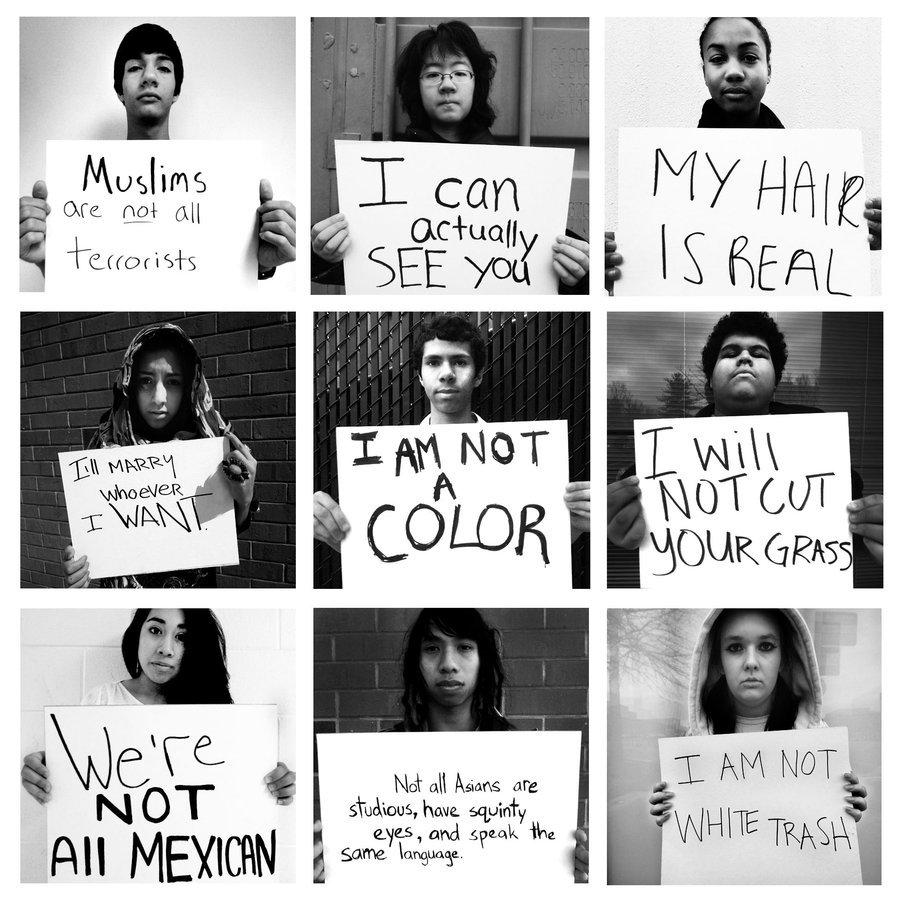Yes Virginia, There is Evidence of Bias

Skepticland is a place where Science and Studies are all important. Anecdotal evidence? Bah! Not important. Especially when it comes to questions of human behavior, people want proof. This is even more true when -isms come up.
Of course it is important that we have something to back up assertions of racism, sexism, or bias. But where a lot of people go wrong is by saying that if they don’t see racism it doesn’t exist. In reality, there are studies upon studies that show evidence of bias towards people of color, women, mentally ill and disabled people, Muslims, atheists…there’s even studies that show how easy it is to manufacture bias on totally arbitrary grounds.
National conversations are currently circulating around race and gender in a big way, with many voices suggesting that we should probably stop talking about these things because racism and sexism are over, ya know? What many people seem to be missing is that beyond the incidents that are the current buzzwords, there’s years of research into bias and discrimination that shows overwhelming evidence that racism and sexism (as well as a whole lot of other -isms) exist.
So when I see people saying that racism and sexism don’t exist, or that they can’t find any evidence about bias, I have to side eye until my eyes are in actual pain. The ease with which one can find studies exploring different elements of bias is actually almost overwhelming. Yesterday, while researching studies for an article on Phactual, it took me barely an hour to find studies supporting evidence of almost every kind of bias I could think of, as well as a superabundance about race and gender.
When I see people saying that black deaths at the hands of cops are not racially motivated, all I can think of is this study showing that we’re more likely to see a harmless object as a gun when it’s held by a black person.
When someone says that women could be in STEM fields if they just tried harder or wanted it more, oh, well what about hiring bias?
When someone suggests that people who are overweight aren’t discriminated against it’s for their own good/they’re just lazy/what bias, I just want to send over this study that literally shows the same individuals are treated differently at different weights.
So why are otherwise skeptical individuals suddenly incapable of Googling when questions of bias appear?
This seems to point towards the tendency of some atheists and skeptics to discount the social sciences, and the serious consequences that come from dismissing them. This isn’t simply a question of having a deeper understanding of other humans: it’s about understanding the ways in which our society has been systematically prejudiced so that we can move towards equity. If we don’t have the tools to adequately assess the current landscape of bias and prejudice, or to understand how and why bias is happening, we can’t dismantle it.
To my skeptics who are skeptical of racism and sexism: get your Google hat on. Check out all the amazing work that has been done around how people of different demographics are treated differently. And don’t come back to conversations about sexual violence, wage gaps, police violence, fair trials, torture, or really any national conversation at this moment in time until you’re better educated.





The weird thing is, a lot of those same skeptics don’t seem to have any issues believing wacky claims if they reinforce their own biases.
Transhumanists telling you that you’ll live forever? Absolutely.
Evolutionary psychology telling you that rape is totes natural? Damn straight.
Sam Harris got you convinced that saying we should specifically target Muslims for airport searches is not racist in any way? Seems legit.
Yeah, skeptics have no issues accepting dubious evidence if it tells them what they want to hear.
I guess they haven’t left their religion entirely behind. Utopian eschatology? Sin as a state of being? Those are fairly Christian concepts.
I have to agree. I can’t count the number of times someone has linked me to an article claiming Study A has proven Thing Y, only to find out that when sources are checked that Study A does not even claim Thing Y at all, but instead somewhat related Thing X. Upon further inspection it turns out that Study A’s proof of Thing X is unconvincing given their data*. Worse, it turns out their data relies entirely on an questionnaire filled out by 27 white, middle class, early 20s undergrads who did it for extra credit.
And that’s entirely leaving out that the better part of these articles are behind a pay wall, and I’d be broke trying to read them all.
*As an example, I was linked once to a study claiming that regular church attendance leads to better classroom results. Their data was relatively sound, but it didn’t seem to cross their minds that, like breakfast, stable families were far more likely to regularly attend church and that children with stable families are more likely to excel in school.
I’d be curious to see how often the people who are skeptical about social science research that seems to show social influences are equally skeptical about the research that seems to show evolutionary influences.
It also may have something to do with the fact that there are numerous contradictory studies on most social science questions. For every study showing a certain bias, there is another study showing no bias, and it takes more than a quick Google search to analyze the methodology and interpretation of each study in a given area.
This is a good post that address it: http://slatestarcodex.com/2014/12/12/beware-the-man-of-one-study/
Unlike all other sciences where there are rarely or never any contradictory studies… oh, wait. Hell, the article you link to isn’t even specifically about social sciences – the first example in it is actually about medical science.
Right… the point is that we should never trust a single study, and that many of the points cited in the OP have contradictory studies showing the opposite of what she claims. Telling someone “just Google it” isn’t a solution to that.
The ongoing discrimination in housing is one of my favorite (least favorite?) examples. It demonstrates that racism is not only still a thing, but a serious problem that is limiting the opportunities of minorities and perpetuating cycles of ghettoization. Here’s a recent version of a HUD study, but fair housing advocates basically conduct experiments on this every day in major cities and find discrimination: http://portal.hud.gov/hudportal/HUD?src=/press/press_releases_media_advisories/2013/HUDNo.13-091
One of the most insidious parts of privilege is the privilege to be oblivious to privilege. It’s also one of the most vigorously protected parts of privilege.
People are only too willing to give the “benefit of the doubt” as to whether a given action is motivated by prejudice or bigotry. There is also the matter that seeking the reality of prejudice and bigotry will expose the similar preconceptions in the actions of the seeker.
What’s especially weird is people who have advanced degrees being entirely dismissive of other fields of intellectual endeavor. It is as though they believe that their knowledge and expertise is directly tied to their innate goodness and smartness and personality, rather than years of studying the hard work of people who came before them. Because they tie their expertise to themselves as an awesome genius person, they feel like if they don’t immediately “get” another field then it must be invalid.